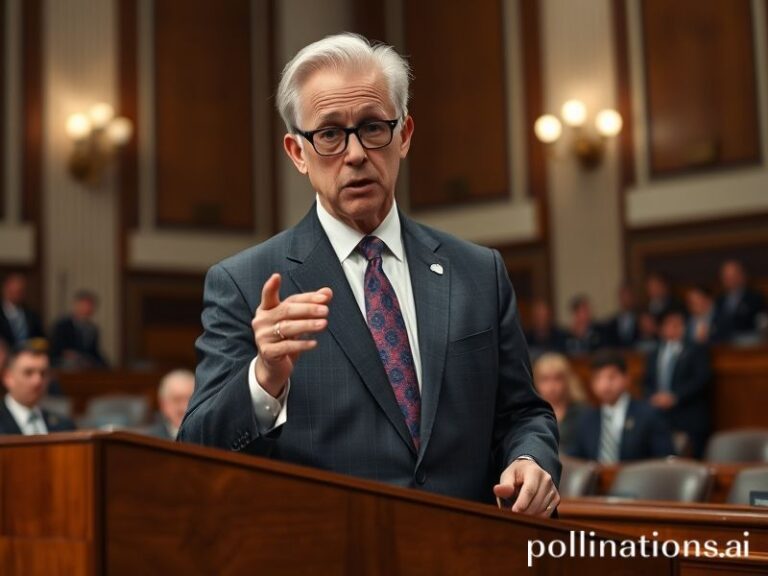Maria Caulfield’s Resignation: Another British Minister Exits the Global Stage, Rwanda Plan in Tow
Maria Caulfield, MP for Lewes and—until recently—Parliamentary Under-Secretary of State for Women’s Health Strategy, has become the latest sacrificial offering in the great global pageant of political self-immolation. Her resignation on 30 November 2023, ostensibly over the Rwanda deportation bill, arrived with the punctuality of a Swiss train and the predictability of a Hollywood sequel. Across continents, seasoned observers barely glanced up from their flat whites; after all, ministers everywhere now resign the way teenagers ghost dates—swiftly, awkwardly, and with a follow-up subtweet.
Yet the ripples travel farther than the English Channel. In Brussels, officials sigh into their Orval: another British minister exits stage right, leaving the EU’s preferred script in tatters. In Washington, Beltway types add another Post-it to the “special relationship mood board” between “Truss lettuce” and “Johnson zip-line.” From Canberra to Accra, the takeaway is universal: immigration policy remains the one arena where even the most polished democracies manage to look like toddlers playing Operation with a machete.
Caulfield’s brief tenure at the Department of Health and Social Care was itself a masterclass in oxymoron. Tasked with safeguarding women’s health, she simultaneously voted to curtail abortion rights in Northern Ireland—an ideological pirouette that impressed even the Vatican’s most flexible casuists. International NGOs, already weary of explaining to donors why rich nations still treat uteruses like contested borderlands, simply updated their PowerPoint templates. Slide 14: “UK: ministerial U-turn probability 97%, confidence interval ±3%.”
The Rwanda plan, that £290 million fever dream of exporting asylum seekers to a country best known for gorilla tourism and exemplary trauma recovery, has become Britain’s darkly comic gift to geopolitics. Analysts in Nairobi hotels drink to it (“Here’s to bespoke colonialism!”), while Kigali officials practise their gracious smiles for the next ribbon-cutting ceremony that will never happen. Caulfield’s objection—that the bill isn’t harsh enough—places her in the curious position of resigning from a burning building because the flames aren’t the right shade of existential.
Globally, the episode confirms the rule that immigration debates are where liberal democracies go to autopsy their own hypocrisies. Australia’s offshore island gulags, Denmark’s Syrian-refugee jewellery seizures, and now Britain’s Rwandan roulette all compete for the annual “Most Creative Evasion of Responsibility” award, statuette shaped like a golden lifejacket. Meanwhile, the actual refugees—those inconvenient extras in the national psychodrama—keep drowning in the Mediterranean, a body of water that has quietly become the world’s largest unmarked graveyard.
Caulfield herself embodies the tragicomic archetype of the modern technocrat: impeccably coiffed, relentlessly on-message, yet ultimately tethered to an electorate that regards consistency as a personality flaw. Her political journey from nurse to MP to ex-minister in under nine years would be impressive if it weren’t so routine. In an age when careers last about as long as a TikTok trend, she has merely followed the meta-instruction manual: rise, tweet, apologise, resign, secure a think-tank sinecure. Somewhere, a Silicon Valley algorithm is already A/B-testing her memoir title: *“Bleeding Heart, Bleeding Border: A Story of Compassionate Cruelty.”*
In the end, Maria Caulfield’s resignation is less a seismic event than another pixel in the high-resolution image of Western decline—sharp enough to recognise, blurry enough to ignore. The world watches, half-amused, half-horrified, like passengers on a long-haul flight witnessing the crew argue over whether the wings are technically on fire. Fasten your seatbelts; we’re heading for some mild turbulence, followed by the usual soft landing on the tarmac of collective amnesia.







